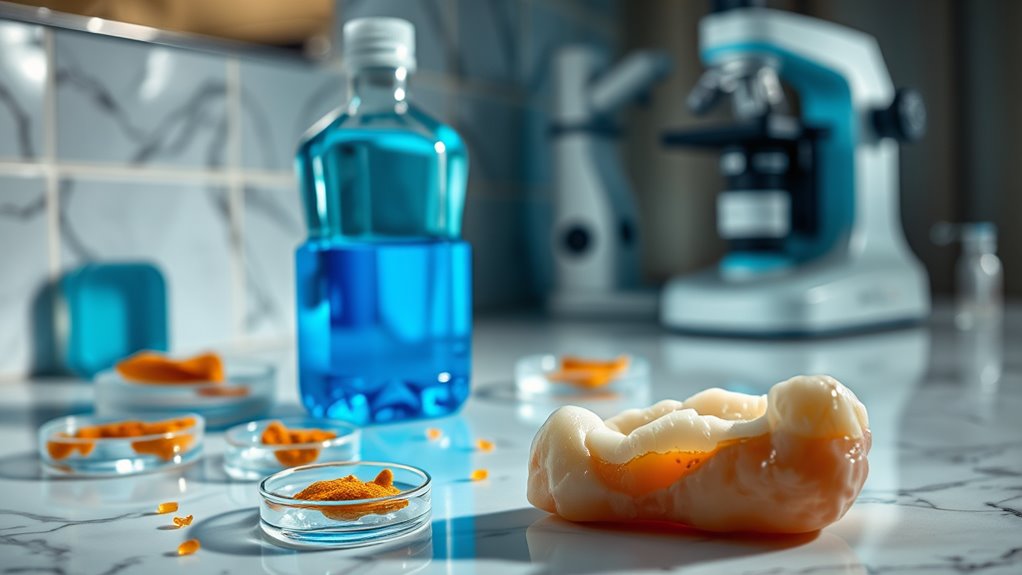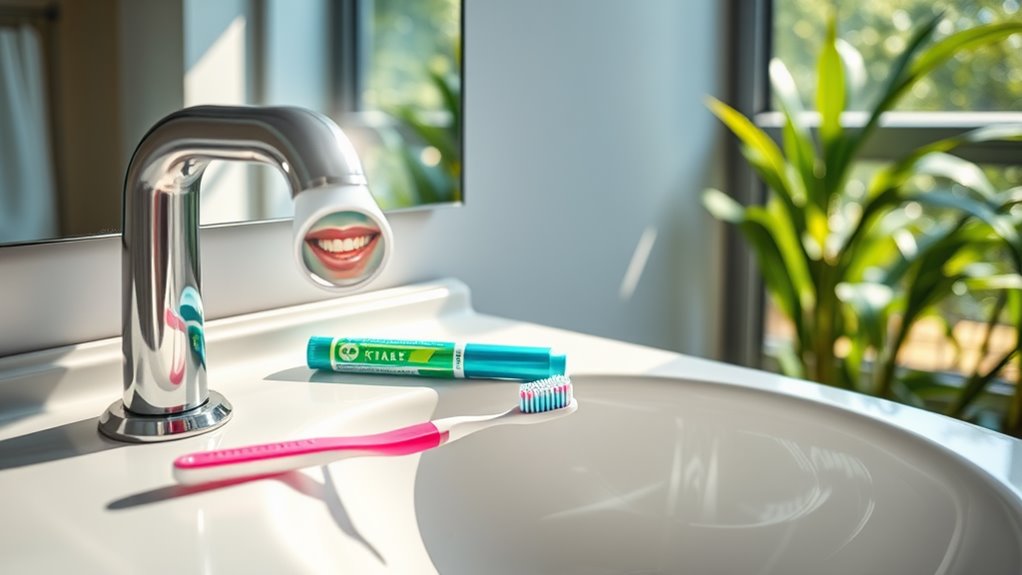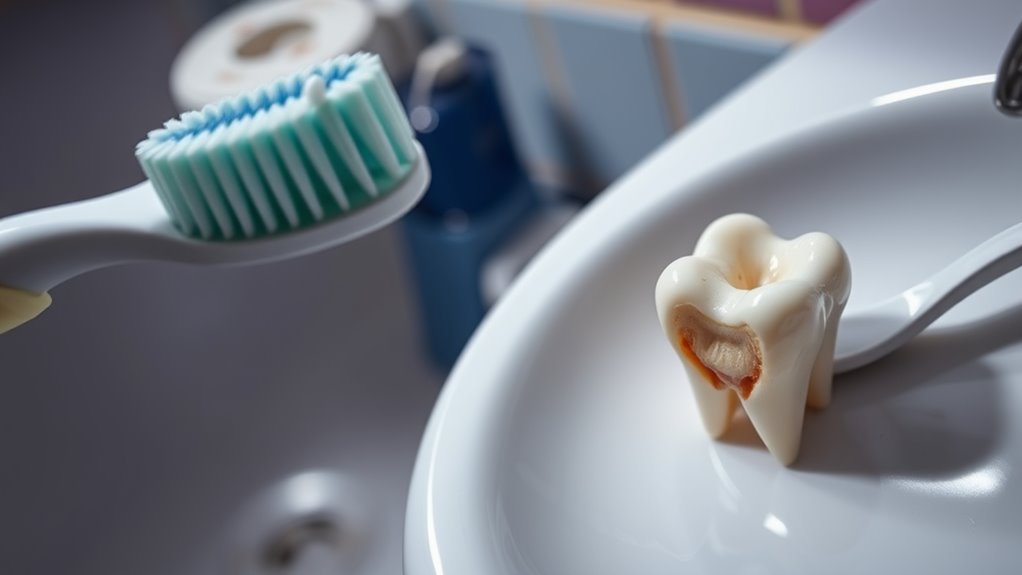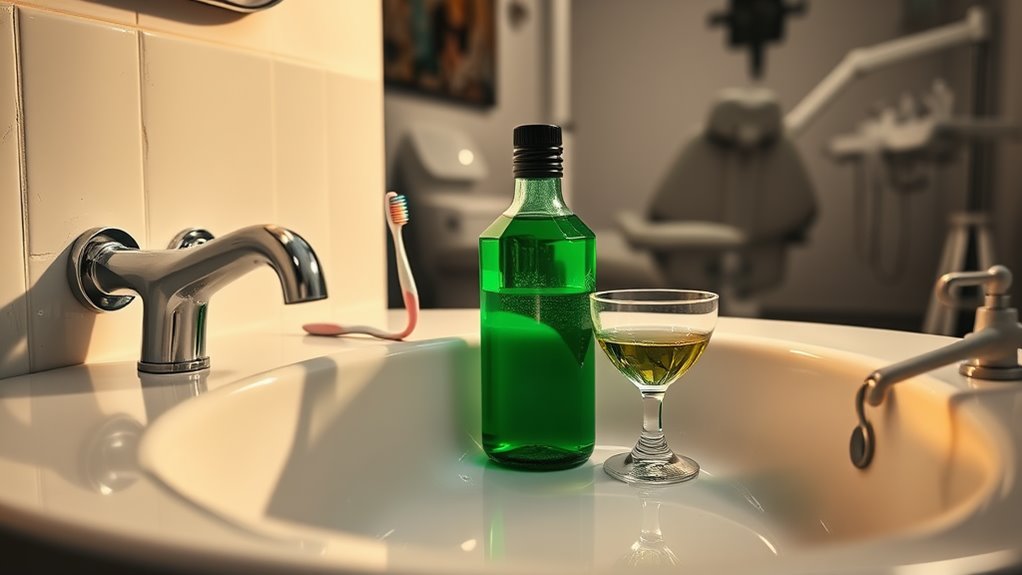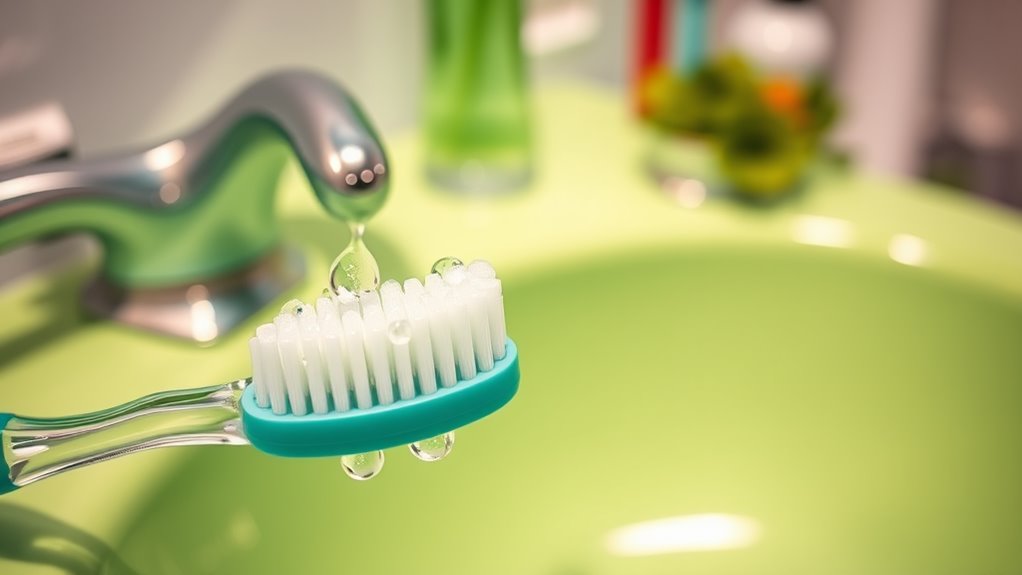The Hidden Dangers of Mouthwash – What No One Tells You!
While you might think mouthwash keeps your mouth healthy, it actually disrupts your oral microbiome by killing both good and bad bacteria. This chemical assault can raise blood pressure, mask serious dental problems, and increase your risk of oral health issues. The alcohol and harsh ingredients in many commercial mouthwashes may even contribute to dry mouth, stained teeth, and oral cancer. Discover safer, natural alternatives that won’t compromise your long-term health.
Understanding the Oral Microbiome and How Mouthwash Disrupts It
While many people view bacteria in their mouths as harmful, your oral cavity actually contains a delicate ecosystem of both beneficial and potentially harmful microorganisms.
These good bacteria help prevent tooth decay, gum disease, and bad breath by maintaining a healthy pH balance and crowding out dangerous pathogens.
When you use harsh mouthwash, you’re essentially nuking this entire microbiome – both good and bad bacteria.
This disruption can lead to an overgrowth of harmful bacteria once the mouthwash wears off, similar to what happens when you take antibiotics.
Your oral microbiome then becomes unbalanced, potentially causing more severe dental issues, chronic bad breath, and even systemic health problems.
The alcohol and antimicrobial agents in most commercial mouthwashes don’t discriminate between helpful and harmful bacteria.
The Concerning Link Between Alcohol-Based Mouthwash and Blood Pressure
Recent research has revealed a troubling connection between alcohol-based mouthwash and elevated blood pressure levels.
When you use mouthwash containing alcohol, it kills beneficial bacteria that help produce nitric oxide in your mouth. This compound plays a crucial role in regulating your blood pressure by relaxing and widening blood vessels.
Studies show that using alcohol-based mouthwash twice daily can raise your systolic blood pressure by 2-3.5 points within 24 hours. While this might seem minor, it’s particularly concerning if you’re already managing hypertension or have cardiovascular concerns.
The effect occurs because the antiseptic properties of alcohol eliminate both harmful and beneficial bacteria indiscriminately, disrupting your body’s natural ability to maintain healthy blood pressure levels through nitric oxide production.
How Daily Mouthwash Use Can Mask Serious Dental Problems
Despite providing temporary fresh breath and a clean feeling, regular mouthwash use can hide underlying dental issues that require immediate attention.
When you rely on mouthwash to combat bad breath, you’re potentially masking symptoms of gum disease, tooth decay, or infections that need professional treatment.
Your mouthwash’s minty freshness might cover up the telltale signs of cavities, such as persistent bad breath or tooth sensitivity. This false sense of security can lead you to delay necessary dental visits while problems worsen beneath the surface.
Additionally, if you’re using mouthwash to handle bleeding gums or persistent tooth pain, you’re overlooking potential periodontal disease or abscesses that require immediate care.
It’s crucial to remember that mouthwash isn’t a substitute for proper dental treatment or regular checkups.
Chemical Ingredients in Mouthwash and Their Long-Term Effects
Common mouthwash ingredients like alcohol, chlorhexidine, and cetylpyridinium chloride can pose significant health risks when used long-term.
These chemicals can disrupt your mouth’s natural microbiome, leading to an imbalance of beneficial bacteria that protect your oral health. High alcohol content may increase your risk of oral cancer and dry out your mouth’s tissues, while chlorhexidine can stain your teeth and alter your taste perception.
You’ll want to watch out for hydrogen peroxide, which can irritate your gums and weaken tooth enamel when used frequently.
Even seemingly harmless ingredients like sodium fluoride can be problematic if you’re already getting sufficient fluoride from other sources.
If you’re using mouthwash daily, consider switching to an alcohol-free version or natural alternatives that won’t compromise your oral microbiome over time.
Natural and Safe Alternatives for Fresh Breath and Oral Health
Natural solutions offer safer ways to maintain fresh breath and oral hygiene without harsh chemicals.
You can create an effective mouth rinse by mixing warm water with sea salt, which helps reduce bacteria and soothes gum inflammation. Another powerful option is coconut oil pulling, an ancient practice that removes toxins and freshens breath.
Essential oils like tea tree, peppermint, and clove make excellent additions to your oral care routine. Simply add a few drops to water for an antimicrobial rinse.
You’ll also benefit from chewing fresh herbs like parsley, mint, or cilantro after meals. Green tea serves as both a breath freshener and cavity fighter thanks to its antioxidant properties.
These natural alternatives not only freshen your breath but also support your overall oral health.
Breaking the Mouthwash Habit: A Step-by-Step Guide
With the natural alternatives in mind, you’re ready to break free from commercial mouthwash dependency. Breaking the habit requires a systematic approach to ensure lasting success.
| Week | Action Steps |
|---|---|
| 1-2 | Reduce mouthwash use to once daily while introducing oil pulling each morning |
| 3-4 | Switch to natural rinses like salt water after meals, use mouthwash every other day |
| 5-6 | Replace mouthwash with herbal infusions, maintain proper brushing and flossing |
| 7-8 | Eliminate commercial mouthwash completely, establish new natural oral care routine |
You’ll notice your mouth feels cleaner and fresher as you transition. If you experience temporary discomfort, remember it’s your oral microbiome rebalancing itself. Stay committed to your new routine, and you’ll soon enjoy better oral health without artificial ingredients.
